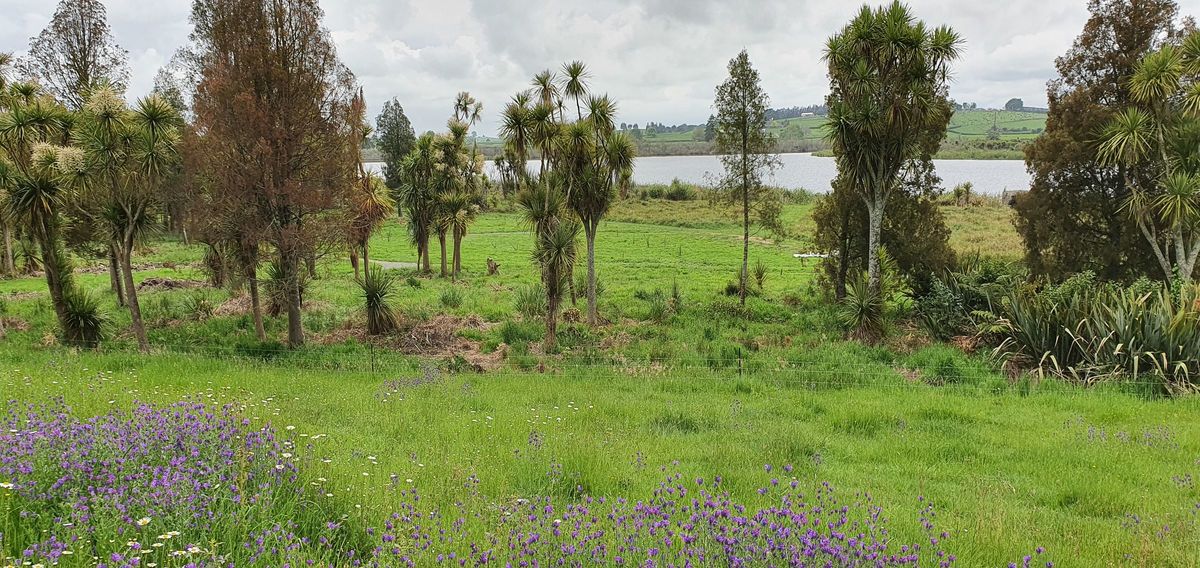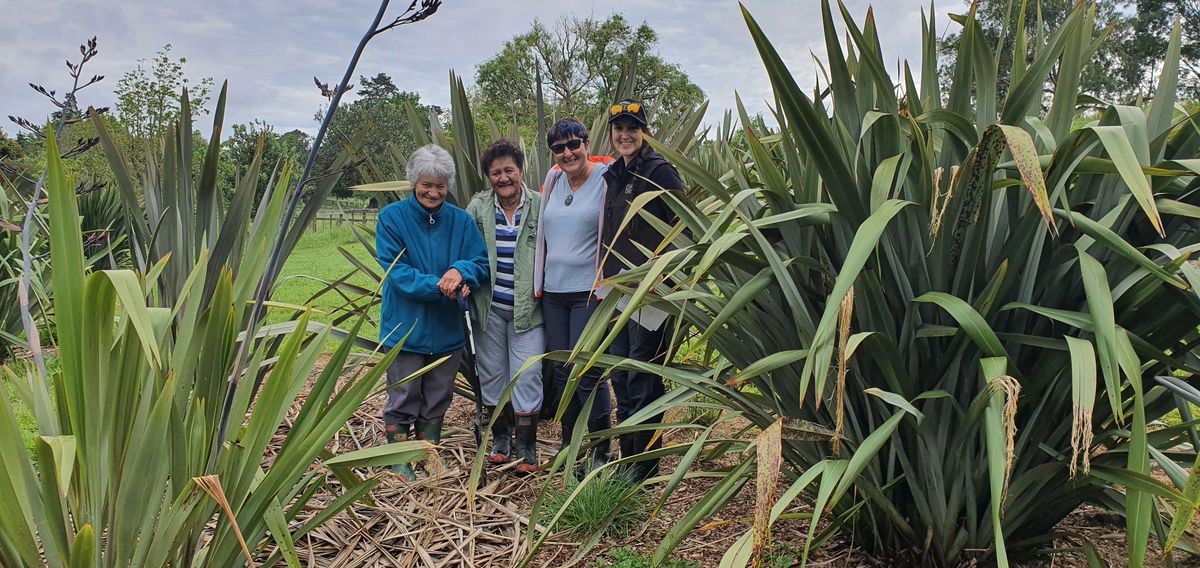
Pā Harakeke
What is this project?
Lake Ruatuna sits within the rohe of Ngāti Apakura who have collaborated with Living Water to ensure the direction of work aligns with Mātauranga Māori. The partnership began with planning sessions between Ngāti Apakura and Living Water to support iwi to manage and monitor their environmental taonga. The sessions discussed cultural values and wānanga / training opportunities. Living Water supports the exercise of kaitiakitanga by Ngāti Apakura by always gathering iwi input into decision making and lake management, including restoring water quality, restoring rongoā plants, improving habitat and increasing / restoring cultural knowledge.
The vision of Ngāti Apakura for Ruatuna is: Recognition of whakapapa aa atua, whakapapa aa tangata, whakapapa aa whenua (genealogy of the gods, people and land), guided by the relevant tikanga protocols of each hapū to maintain the inherent kaitiakitanga obligations of our tūpuna (ancestors).
What has been done?
One project underway with Ngāti Apakura is the planting of a Pā harakeke / rongoā (traditional Māori medicine) garden and Nature Education Trail. Eleven varieties of harakeke (flax) kindly donated by local Penney Cameron from her own Pā harakeke, and others, have been planted. In time the garden’s diverse harakeke varieties will be harvested by weavers for different projects. For example, a certain type of harakeke would be used for tough kete or mats, and another for fibrous flexible cloaks, or piupiu for kapahaka, or a beginner weaver might require soft leaves.
The Pā harakeke and rongoā garden has many benefits in addition to the positive environmental outcomes. School students may explore the garden to learn about weaving and traditional medicine. Weavers who have difficulty finding harakeke needed for specialised garments, such as for kete or mats and fibrous flexible cloaks, would benefit from finding it in a central place.
Work commenced in February 2020 with the removal of pest plants, the creation of a walking track and ground contouring which was completed in June 2020. Eleven flax varieties and several tree species significant to Māori medicine were planted in October 2020. In September 2021 approximately 900 more rongoā plants were planted.
An education trail will be developed at the site so visitors can learn about the importance of these plant and tree species for Mātauranga Māori. School programmes may be introduced, where students explore the garden to learn about weaving and traditional medicine. The upgraded amenity block could be used for weaving workshops and wānanga.
What’s been achieved?
The Pā harakeke is a "one stop shop" for learning about materials and weaving, and growing harakeke species difficult to find or needed for specialised garments. It is a place to learn about traditional medicine. Access to the lake and garden has been improved and the upgraded amenity block is a valuable resource for weavers, school students and visitors.

Dion Patterson

Rose Graham

